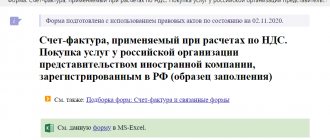Well done, the Federal Tax Service! You have to come up with such a clever idea - in just a few years, create such a system of tax control - where everyone watches everyone.
Banks and financial companies are built into the control system. Auditors and notaries received a technique for identifying problematic clients. Law and accounting firms are also required to participate. Be vigilant - identify suspicious people, stop illegal actions and report where appropriate. For inaction, responsibility will come.
But the most ingenious move is to check the business with the business itself!
We are talking about checking potential counterparties, which - according to the new rules - has become an obligation. Moreover, with a severe penalty for non-compliance - 1) accusation of complicity and 2) refusal to reduce the tax base when calculating taxes.
In accordance with the new verification rules, the usual tactful due diligence has been transformed into strict control.
The question is important. And the article turned out to be big. I divided it into two parts.
So, part one.
What documents should be requested from the counterparty before cooperation?
It is better to indicate that your company should require certain documents before concluding contracts in the Regulations on the company’s contractual work. In this case, it will be easier to justify to a potential partner on what basis you require to present certain papers. The list of documents that should be checked depends on which company you will be working with:
- with a Russian legal entity,
- with an individual entrepreneur,
- with a foreign legal entity.
In any case, the documents must be current at the time of presentation, in the current edition. You can check this through the information in the extract from the Unified State Register of Legal Entities (in the case of legal entities) or the Unified State Register of Individual Entrepreneurs (in the case of individual entrepreneurs).
The document is needed in the full version - the first and last pages or an extract will not work.
Deadline for fulfilling tax demands
The documents requested by the tax inspectorate must be submitted within five working days following the day the request was received (clause 5 of Article 93.1 of the Tax Code of the Russian Federation). If the company does not have the requested documents, then this must be reported to the inspectorate within five days. In this case, the fact of failure to submit documents will exempt the company from sanctions (the company did not ignore the request of the Federal Tax Service, but reported in good faith that it did not have the requested documents).
Often a company is not able to prepare documents within the five-day period allowed by tax legislation. For example, if the organization is small, and the only accountant who keeps records is in the hospital. In this case, the provisions of the Tax Code of the Russian Federation make it possible to request an extension of the period for preparing and submitting the requested documents. This must be done quickly enough - the next or on the same day after receiving the request (clause 3 of article 93, clause 5 of article 93.1 of the Tax Code of the Russian Federation).
For the message, a special notification is drawn up in the form approved. by order of the Federal Tax Service of Russia dated January 25, 2017 No. ММВ-7-2/34. If you wrote a letter requesting a deferment in any form, but the Federal Tax Service refused you due to incorrect notification, we can please you. Refusal to extend the deadline based on a notice drawn up in any form is considered illegal. This is noted by the Federal Tax Service of Russia in letter dated June 27, 2017 No. ED-4-2/12216. In any case, the notification must contain reasons explaining the impossibility of submitting documents on time, as well as the period within which the documents can be submitted. At the same time, there are no restrictions on the extension period (letter of the Ministry of Finance of the Russian Federation dated December 18, 2015 No. 03-02-08/74563).
It is worth noting that sending such a notification does not guarantee an automatic extension by the inspectorate of the initially allotted period. The inspectorate may refuse to extend it. Moreover, she is not at all obliged to explain and justify the reasons for her refusal (letter of the Federal Tax Service dated December 4, 2015 No. ED-16-2/304).
List of documents requested from individual entrepreneurs
The list of documents confirming the legal status of an individual entrepreneur differs from the set of documents available to legally functioning legal entities: (click to expand)
- Individual entrepreneurs do not have constituent documents as such - there is neither a Charter nor a constituent agreement.
- The work of an individual entrepreneur is considered legal after receiving a state certificate. registration of entrepreneurs (USRIP).
- The individual entrepreneur must provide an extract from the Unified Register of Entrepreneurs (USRIP), not from the Unified State Register of Legal Entities.
An entrepreneur can enter into an agreement and sign it on the basis that he has a Unified State Register of Entrepreneurs (USRIP) certificate and a Russian passport.
Calculation of indicators
If you have the counterparty’s financial statements at your disposal, you can calculate indicators of its liquidity and solvency:
- The total liquidity ratio is equal to the ratio of the organization's current assets to short-term liabilities. It shows how much the company is able to pay off its current debts and obligations only through working capital. The higher the value of this coefficient, the more solvent the counterparty is. It’s good if it is 2 or more, but 1.5 is considered an acceptable result.
- Solvency ratio is the ratio of equity capital to equity assets. It shows how independent the organization is from external sources of funding. It is believed that if its value is below 0.5, then there is reason to think about the financial stability of the company.
List of documents requested from a legal entity
Before you legally start working with legal entities registered in Russia, you need to check the following documents:
- Legal or statutory.
- Registration.
- From the tax authorities.
- Evidence of the authority of the person who will sign the agreement.
- Extract from the Unified State Register of Legal Entities.
- Work license (if the type of activity requires it).
- Sample signature of the head of the company.
It is best to ask for notarized copies of documents or signed by an official of the company. A printing application is preferred. The fact that you accepted the papers can be confirmed by an inventory or act.
- Constituent. This includes the Charter and/or the constituent agreement, presented in the full version and in the latest edition (you can check this fact using an extract from the Unified State Register of Legal Entities). If there are any doubts regarding the authenticity of the documents presented, you can additionally request old editions.
- Extract from the Unified State Register of Legal Entities. Request an extract that was issued no later than the date of its transfer by the counterparty or the day that will be indicated in your uniform rules for checking papers. Under no circumstances agree to accept a statement made a month earlier.
You can double-check the information on the official website of the tax service. If the data differs from the information provided by the counterparty, you need to keep in mind that the Federal Tax Service portal is updated once a week.
For additional verification, you should look at the data on companies in the Unified Federal Register of information on the facts of the activities of legal entities. In this case, you should pay attention to the text of paragraph 22 of the Resolution of the Plenum of the Supreme Court of the Russian Federation No. 25, it provides explanations of how to work with this resource.
Certificate of state registration
Be sure to check the OGRN certificate, each page of the Unified State Register of Legal Entities, as well as certificates of amendments to the Unified State Register of Legal Entities and the text of the constituent documents. Make sure that the name of the company in the constituent documents is the same as in the OGRN certificate. They do not coincide only under one condition - if the legal entity changed its name. But then this fact will be reflected in the Unified State Register of Legal Entities.
Find out if there are any legal proceedings with the counterparty
Courts are not always a bad thing: your counterparty himself can file lawsuits against unscrupulous performers. Therefore, it is necessary to take into account who sued whom and for what reason.
You can check this in the file of arbitration cases. See if there are cases in which the company is a defendant and study the documents. If there are many similar proceedings, and they involve non-fulfillment of obligations or fraud, this is a reason to refuse the transaction. If there is no business at all, this is a good sign.
It happens that cases are brought against a specific person in the company, or that the decision was made recently. Therefore, it would not be amiss to check the founders, managers and the company itself for the presence of enforcement proceedings. These are cases after the trial, transferred to the bailiffs.
You can view active enforcement proceedings on the FSSP website. Use the search by individuals to find cases involving managers, and by legal entities to find cases on the legal entity themselves. If there are productions, and the company owes large sums for them, this is a bad sign. The ideal situation is when the service finds nothing.
List of documents requested from a foreign company
Obviously, when collaborating with a foreign company, you need to be more careful than when concluding an agreement with a Russian company. Some features need to be taken into account:
- Without exception, all documents proving the legal status of a foreign enterprise must have an official translation into Russian. Also, for companies from all countries with which Russia has not concluded an international agreement on a simplified procedure for cooperation, it is required to legalize documents (have a separate document, sometimes an apostille). This applies to the Charter, certificate of incorporation, and articles of association. An apostille is required for those states that are not parties to the Hague Convention. The power of attorney of the employee signing the contract is subject to certification in a similar manner.
- Additionally, you need to request an extract from the trade register of the state where the company is registered (such a register is not maintained in all countries - if this is your case, ask for a certificate proving the successful functioning of the company). The current status of the enterprise in the statement should be “active”.
See if the manager is disqualified
People caught in some kind of fraud usually end up in special registers. Being there means that the person does not have the right to manage a company or operate as an individual entrepreneur. This also means that it is better not to deal with such a counterparty.
You can check the information at:
- register of disqualified individual entrepreneurs and managers who cannot manage companies;
- the register of persons who cannot manage companies - information is entered there on the basis of court decisions.
In the first case, you need to know the person's last name, first name and patronymic. In the second, the search is based on the company’s tax identification number - you see everyone who cannot manage it.
Legislative acts on the topic
It is recommended to study the documents in advance:
| Document | Name |
| Art. 174 Civil Code of the Russian Federation | On declaring a transaction invalid if the powers of the director of the second party were in any way limited at the time of signing the agreement |
| clause 1 art. 186 Civil Code of the Russian Federation | On recognizing the power of attorney of authorized persons as invalid if it does not contain the date of its execution |
| Art. 1, Art. 12 of the Federal Law of May 4, 2011 No. 99-FZ “On licensing of certain types of activities” | List of activities subject to licensing |
When it is necessary
Ideally, it is advisable to assess an existing or potential counterparty before any transaction. However, this is not always possible. It is mandatory to carry out such an analysis if:
- a new business partner appears;
- it is planned to work with a counterparty with whom cooperation was previously sporadic; it is planned to work in the long term;
- when signing an agreement with deferred payment or advance payment;
- whenever suspicions arise about the solvency of a counterparty, including a potential one.
The approach to assessment can be different: a complete analysis of the activities of a business entity or determination of individual most important indicators , the analysis of which will be sufficient to draw conclusions about the solvency and reliability of the counterparty.
Typical design mistakes
Mistake #1. A Russian company began to cooperate with a foreign company without thoroughly checking information about its activities.
If due diligence is not exercised, the tax inspectorate will accuse the company of trying to reduce the tax base, which will lead to a comprehensive audit of the company and additional taxes.
Mistake #2. A domestic company entered into an agreement with an enterprise whose status in the trade register of the country of registration was listed as “discontinued”.
If you start cooperation with an organization that has ceased its activities, it will be impossible if it fails to fulfill its obligations to defend its interests in court.
Why is this necessary?
Trust is certainly a good thing, but building a business only on this is fraught with unpleasant consequences. Their range is very wide:
- financial losses;
- reputational risks (for example, due to non-receipt of payment from the counterparty, the company was unable to fulfill its loan obligations);
- tax audits, additional assessments and sanctions for failure to exercise due diligence when choosing a counterparty;
- refusal to refund VAT;
- legal proceedings, prosecution.
Answers to common questions
Question No. 1. What should you pay attention to if an agreement with a legal entity is signed by its authorized representative, not its manager?
First of all, check whether this person has been issued a power of attorney to perform these actions. If the document is available, look at the date on which it was executed - if the date is missing, the power of attorney is invalid. Also pay attention to its expiration date. The document is certified by a notary or the management of the company that issued it. The text of the power of attorney must clearly state that the employee has the right to enter into contracts on behalf of the company.
Question No. 2. If all the documents were verified, but the business owner did not know or could not know about some significant points, due to which a dispute subsequently arose, will the court be on his side?
No. In this case, the businessman will be considered to have failed to exercise due diligence, since he could have hired a lawyer or consulted elsewhere.
Stage 2. Assessing the potential of the counterparty and the risk of non-fulfillment of its obligations under the contract
Goal: to understand how and with what resources the counterparty will be able to fulfill the contract.
To analyze the availability and sufficiency of the counterparty’s resource base:
1. We request accounting and tax reporting. We assess the financial solvency of the counterparty - what assets are on the balance sheet and what about the liabilities. Is your business growing or stagnating? We clarify what is owned, what is leased, what is leased - for how long. Interested in everything - production facilities, office premises - warehouses, offices, retail - technological equipment, equipment, transport.
2. We find out the specifics of the work and technological process - where are the supplies coming from, is there any import, who are the main suppliers, who are the buyers, is there any export. Transport provision - at whose expense.
3. Are co-executors involved? For what reason - for example, lack of production capacity, limited vehicle fleet, lack of qualified personnel. Strength and long-term business relations with them. How do you check their business reputation?
4. Are there full-time employees, qualified personnel. What data is in the certificate about the average number of employees?
5. Information about the experience of executing contracts of this kind. Are there any reviews and recommendations from previous partners, how the contracts were executed and what results were achieved. Were there any claims or disputes?
To assess the actual capacity of the counterparty and the sufficiency of the resource base, tax officials advise visiting the office of a potential counterparty, as well as its trading floors, production and warehouse premises. I have never encountered inspections of this kind. As a rule, there is enough data to be wary and reject a counterparty based on suspicious signs without this. But I won’t deny it – apparently, yes, it’s effective. In this case, if you go for an inspection, keep the photographic record.
The absence of a warehouse or transport in itself does not mean that transactions are unrealistic - for example, the resale of goods can be carried out without them. But the logic of any business must be present, clearly explained and understandable to you.
Let me comment on another controversial advice from consultants - maybe you are very scrupulous about checking counterparties? – go through 12 criteria for assigning on-site tax audits. I won’t argue vehemently, but in practice I have never seen a company refuse a deal because the counterparty’s salary is below the industry average, the tax burden is low, or the share of VAT deductions is exceeded. Yes, it should be alarming. These are verification indicators. But how many companies are there that are in perfect order according to all 12 selection criteria for inspection?
If you do not see the company’s reporting indicators and cannot assess its potential, if the counterparty does not want to submit documents and avoids explanations, it is better not to work with such a counterparty!
As we see, the business is entrusted with a full-fledged audit function. A suspicious counterparty is illegal. It is dangerous to enter into an agreement with him. The business environment itself will send him to a commercial ban.









